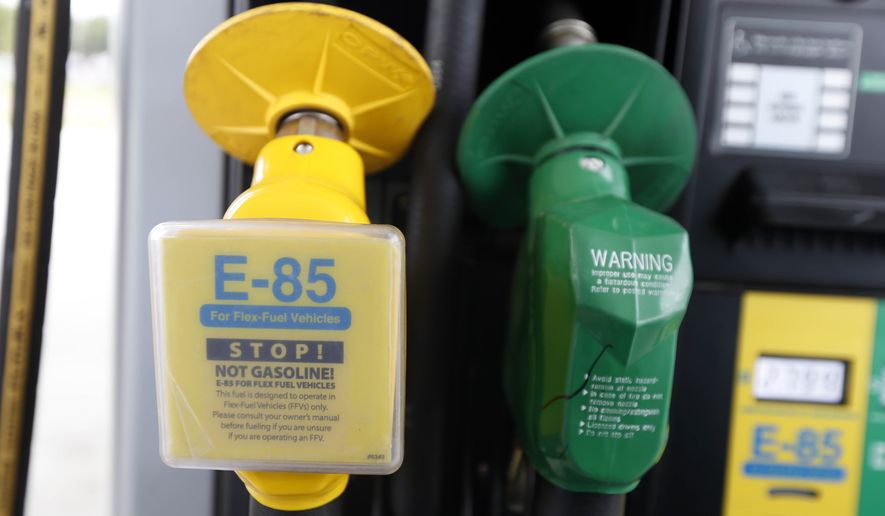ANALYSIS/OPINION:
Something is rotten in the Environmental Protection Agency’s regulatory matrix governing the Renewable Fuel Standard (RFS) mandated by Energy Policy Act of 2005. The RFS was designed to diminish petroleum imports and carbon dioxide emissions. But it imposes a punishing and fraud-ridden burden on small fuel manufacturers ill-equipped to assume the financial costs of third-party blending of 10 percent renewable fuels like ethanol into petroleum fuel. In the words of regulatory terminology, the EPA has foolishly made fuel manufacturing the “point of obligation” to enforce the RFS.
It artificially handicaps small petroleum refineries in competing with larger business enterprises better suited to absorb the substantial costs of blending. Moreover, placing the “point of obligation” on small fuel manufacturers invites counterfeiting of valuable Renewable Identification Numbers (RINs) which are assigned to the blended fuel product. Small fuel manufacturers must purchase them to satisfy their RFS Renewable Volume Obligation.
The RFS requires all transportation fuels to include a minimum 10 percent volume of renewable fuels such as ethanol. Refiners and importers who do not blend their petroleum fuel with renewable fuel before selling are compelled to buy RINs every year to satisfy their RFS obligations.
RINs are generated when renewable fuels are produced. They are “attached” to each gallon of renewable fuel until blending with gasoline or diesel occurs—typically at loading racks where tanker trucks fill up. At that point, the RINs can be separated and sold by major retailers to small fuel manufacturers.
Whoever blends renewable fuel into petroleum fuel, i.e., “Rack Sellers,” receives a RIN—even though they are not required to turn them in to the EPA. In contrast, RINs are in high demand by small fuel manufacturers and importers who must purchase them to remain in business by dint of the current regulatory “point of obligation.” Rack Sellers exploit these captive RIN buyers. RIN prices climb annually because the amount of RINs required of refiners or importers to satisfy the RFS increases faster than the volume of renewable fuel blended that creates the needed RINs.
The consequence is a regulatory train wreck.
Rack Sellers, who are neither refiners nor importers of petroleum fuels, enjoy a huge windfall—a recurring earmark of crony capitalism. They blend fuel and receive RINs for future sale to obligated parties under the RFS. One major retailor made approximately $118 million on selling RINs alone in 2015. Other major retailers with the financial resources to blend fuel at the rack are racing into selling RINs. And they have been joined by a mushrooming of counterfeiters.
The RIN market has exploded from $1 billion in 2010 to $15 billion in 2016. The price of RINs has increased as much as 5,000 percent since the RFS point of obligation was created—20 times the cost of a gallon of ethanol. Doug Parker, EPA’s criminal enforcement division head, estimates the magnitude of RIN consumer fraud annually at $1 billion, and elaborated: “The regulatory status quo in this program will deprive the American public of the full energy, consumer, and environmental benefits the founding statutes sought to provide while continuing to expose U.S. taxpayers to ongoing fraud.”
To level the playing field and to stop the hemorrhaging RIN fraud, EPA should shift the point of obligation to a manageable number of major “above the rack” blenders that supply transportation fuels to wholesalers, retailers, or ultimate consumers. That would end RIN fraud by matching RFS obligations with RIN generation. And the fuel transportation market would become more competitive and less inequitable by ending the bonanzas enjoyed by blenders by selling RINs to captive buyers at monopolistic prices.
If the Trump revolution means anything, it means ending marketplace distortions engendered by regulatory clumsiness.




Please read our comment policy before commenting.